How to Train Clients With Mental Illness (Step-by-Step Guide)
Understanding how to train clients with mental illness can lead to a valuable expansion of your personal training clientele. But it’s essential to have the right tools and knowledge to train someone with mental health issues safely and effectively. Making use of specific personal training software features can assist in achieving this goal. Learn how to train clients with mental illness and what tools are needed in this detailed guide.
- Training clients with mental illness requires a holistic approach that combines physical fitness with mental wellbeing, promoting routines that can help manage symptoms and improve overall mood.
- Most clients with mental illness may benefit from consistent, moderate-intensity workouts that can help reduce stress and enhance mood, alongside mindfulness and relaxation techniques.
- The use of workout and assessment software can help ensure your client’s safety and support them in reaching their fitness goals with fewer setbacks.
Venturing into training special populations, like clients with mental illness, can provide personal trainers a rewarding way to diversify their business.
To train clients with mental illness, you need not only an understanding of mental health but also the necessary tools to deliver effective, holistic training; that’s where personal training software steps in. By taking advantage of the features that top-quality online personal training software has to offer, you can train clients with mental illness in a way that works for them and boosts their overall wellbeing.
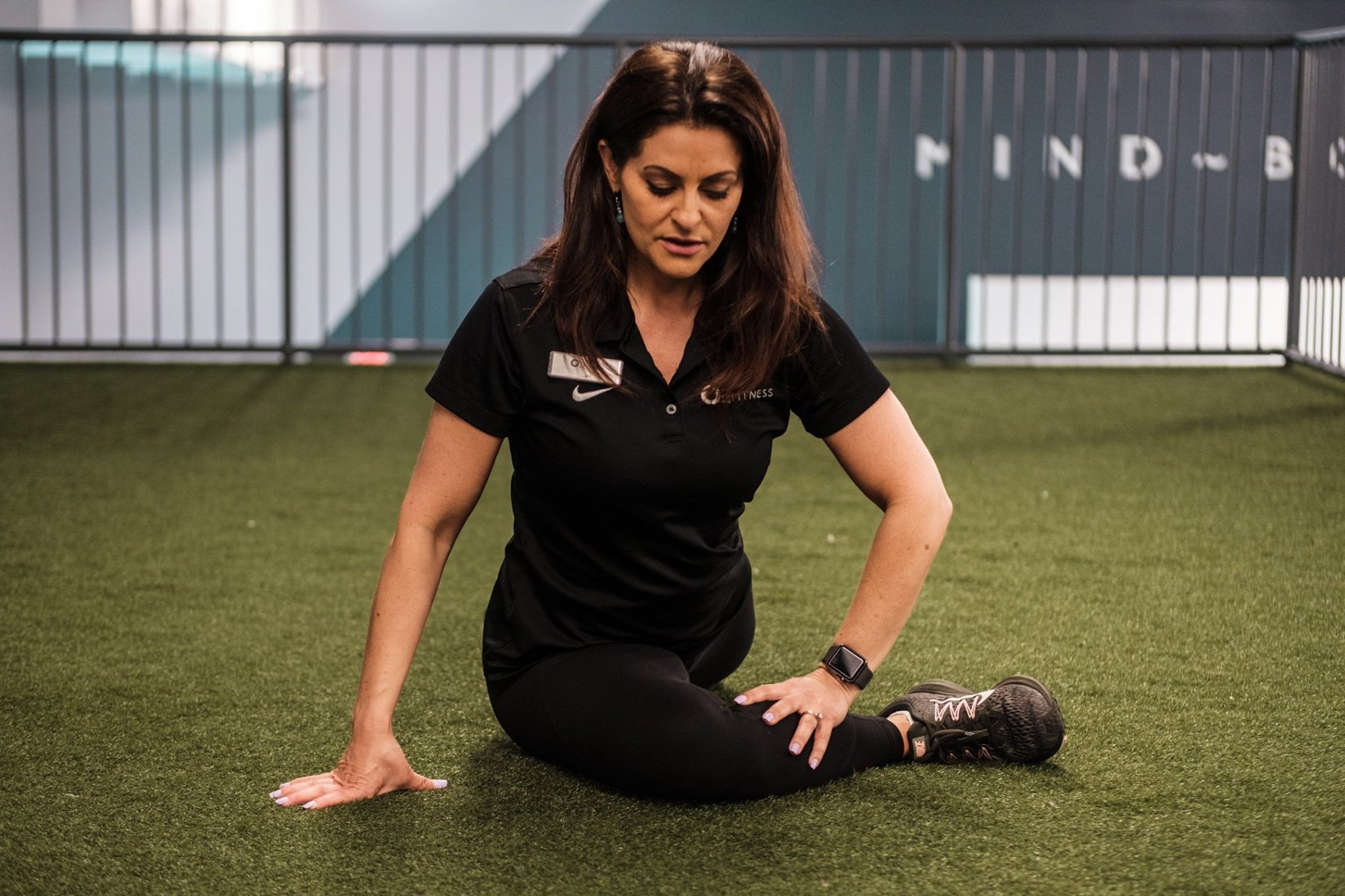
To get the best personal training software from Exercise.com, book a demo now!
Understanding the Importance of Mental Health in Fitness Training
Mental health plays a crucial role in overall well-being, and this is particularly true when it comes to fitness training. When working with clients who have mental illness, it is essential to recognize the importance of addressing their mental health alongside their physical fitness goals. This understanding helps create a holistic approach to training that promotes overall wellness.
Mental health affects not only an individual’s emotional state but also their motivation, energy levels, and ability to perform physical activities. By acknowledging and discussing mental health openly, trainers can create a safe and supportive environment for their clients. This fosters trust and encourages open communication, allowing trainers to tailor exercise programs effectively.
In addition to the impact on emotional well-being and physical performance, mental health also influences an individual’s ability to adhere to a fitness routine. Clients with mental illness may face unique challenges such as fluctuating motivation, difficulty in maintaining a consistent exercise schedule, or managing stress and anxiety related to their fitness goals. Recognizing and addressing these challenges can help trainers develop strategies to support their clients in overcoming barriers and staying committed to their fitness journey.
The Impact of Mental Illness on Physical Fitness
Mental illness can significantly impact an individual’s physical fitness. Conditions such as depression, anxiety disorders, bipolar disorder, and PTSD can lead to decreased energy levels, motivation, and concentration. These factors can make adhering to a regular exercise routine challenging.
Moreover, certain medications used to manage mental illness may have side effects that can affect physical performance. For instance, antidepressants can cause weight gain or drowsiness, while antipsychotic medications may contribute to metabolic changes. Trainers need to be aware of these potential challenges and tailor their training approach accordingly.
In addition to the challenges posed by mental illness and medication side effects, individuals with mental health conditions may also face stigma and discrimination in fitness settings. This can create barriers to accessing and participating in physical activities. Trainers and fitness professionals should strive to create inclusive and supportive environments that promote mental well-being alongside physical fitness.
Breaking Down Stigma: Creating a Safe Space for Clients with Mental Illness
One of the biggest barriers individuals with mental illness face is the stigma surrounding their condition. Trainers can play a crucial role in breaking down this stigma by creating a safe and inclusive environment for their clients. This involves promoting understanding, empathy, and acceptance.
Trainers should familiarize themselves with various mental health conditions and educate themselves on their symptoms and potential challenges. By doing so, they can become more confident and knowledgeable advocates for their clients, helping to reduce the stigma that often accompanies mental illness.
Designing Individualized Exercise Programs for Clients with Mental Illness
Every individual is unique, and this is especially true for clients with mental illness. Trainers must design exercise programs that are tailored to each client’s specific needs, taking into account their mental health condition, fitness level, and personal goals.
Working closely with the client and potentially collaborating with mental health professionals, trainers can identify exercises and techniques that promote mental wellbeing while also targeting physical fitness goals. This individualized approach helps clients feel understood, empowered, and motivated to continue their fitness journey.
Incorporating Mindfulness and Meditation Techniques into Training Sessions
Mindfulness and meditation techniques have been shown to have significant benefits for individuals with mental illness. These practices help reduce stress, increase self-awareness, and promote a sense of calm. Incorporating such techniques into training sessions can provide clients with valuable tools for managing their mental health.
Trainers can introduce mindfulness exercises such as deep breathing, body scans, or guided meditations at the beginning or end of each session. These exercises allow clients to connect with their bodies and focus on the present moment, helping to alleviate anxiety and improve focus.
Building Trust and Establishing Rapport with Clients experiencing Mental Health Challenges
Building trust and establishing rapport are essential foundations for successful training sessions, particularly when working with clients experiencing mental health challenges. These individuals may feel more vulnerable, and it is crucial for trainers to create a safe and supportive environment.
Trainers can achieve this by actively listening to their clients, validating their experiences, and providing encouragement and support. By demonstrating empathy and understanding, trainers can establish a strong rapport that fosters trust and motivates clients to continue their fitness journey.
Tailoring Fitness Goals to Accommodate Clients with Mental Illness
Setting fitness goals is an integral part of any training program, but when working with clients with mental illness, it is crucial to approach goal-setting in a mindful and flexible way. Trainers should prioritize the mental health and wellbeing of their clients, ensuring that goals are realistic, achievable, and adaptable.
By working collaboratively with clients, trainers can identify short-term and long-term goals that are meaningful and align with their mental health needs. Adjustments may need to be made along the way, depending on the client’s mental health status and progress. This flexibility empowers clients to prioritize their mental wellbeing while also working towards physical fitness goals.
Adapting Training Methods for Clients with Anxiety Disorders
Anxiety disorders can pose unique challenges when it comes to fitness training. Trainers need to be aware of the symptoms their clients may experience during sessions, such as increased heart rate, shortness of breath, or difficulty concentrating.
To accommodate clients with anxiety disorders, trainers can incorporate relaxation techniques, such as deep breathing exercises or progressive muscle relaxation, into training sessions. These techniques help reduce anxiety and promote a sense of calm, enabling clients to engage in physical activity more comfortably.
Strategies for Motivating and Encouraging Clients with Depression during Workouts
Depression can significantly impact an individual’s motivation levels and ability to engage in physical activity. Trainers need to be mindful of the potential challenges their clients may face and develop strategies to motivate and encourage them during workouts.
One effective strategy is to focus on small, attainable goals that provide a sense of accomplishment. Celebrating even the smallest achievements can help boost motivation and build confidence. Trainers can also vary the types of exercises to keep workouts engaging, create a positive and supportive atmosphere, and regularly check in with clients to offer support and guidance.
Managing Stress and Promoting Relaxation Techniques for Clients with PTSD
Clients with post-traumatic stress disorder (PTSD) may experience heightened stress levels and sensory sensitivities that can impact their ability to participate in physical activities. Trainers need to create a safe and low-stress environment for these individuals.
Incorporating relaxation techniques such as deep breathing, guided imagery, or yoga poses into training sessions can help clients manage stress and promote relaxation. Establishing a predictable and structured routine can also provide a sense of stability and safety for clients with PTSD.
Addressing Body Image Concerns and Eating Disorders in Fitness Training
Body image concerns and eating disorders are common among individuals with mental illness, particularly in relation to physical fitness. Trainers must approach these sensitive topics with care and sensitivity, prioritizing the individual’s mental and emotional well-being.
To address body image concerns, trainers can promote a focus on health, strength, and self-acceptance rather than appearance or weight. Encouraging positive self-talk and implementing body-positive language can be empowering for clients with body image struggles.
When working with clients with eating disorders, it is essential to consult with mental health professionals to ensure a comprehensive and collaborative approach. Trainers should be aware of any specific exercise restrictions or modifications required and foster a supportive environment that emphasizes overall health and well-being.
Overcoming Obstacles: Supporting Clients with Bipolar Disorder in their Fitness Journey
Clients with bipolar disorder may experience mood swings and energy fluctuations that can affect their ability to adhere to a consistent fitness routine. Trainers can provide support and guidance to help clients navigate these challenges and maintain a healthy fitness journey.
It is essential to encourage clients with bipolar disorder to establish and maintain a consistent exercise routine that considers their energy levels and mood fluctuations. Regular check-ins, open communication, and flexibility in adjusting workouts can ensure clients feel supported and empowered to continue their fitness journey.
Working with Clients Who Have Obsessive-Compulsive Disorder (OCD): Tips and Best Practices
Clients with obsessive-compulsive disorder (OCD) may have specific exercise preferences or concerns due to their condition. Trainers should take these needs into account and work closely with the client and potentially mental health professionals to ensure a safe and comfortable training environment.
Understanding and respecting the individual’s specific OCD triggers and obsessions is essential. Trainers can collaborate with the client to develop strategies for managing any anxiety or discomfort that may arise during training sessions. Encouraging open communication and providing reassurance and support can help clients with OCD feel heard and understood.
Understanding and Supporting Clients with Attention-Deficit/Hyperactivity Disorder (ADHD)
Attention-deficit/hyperactivity disorder (ADHD) can affect an individual’s ability to focus, stay organized, and follow directions. Trainers working with clients with ADHD can employ certain strategies to support their specific needs and optimize their training experience.
Breaking down exercises into smaller, manageable steps and providing clear and concise instructions can help clients with ADHD stay engaged and focused. Trainers can also incorporate time management techniques and visual aids to help clients with organization and planning.
Encouraging Social Engagement and Community Support for Clients with Schizophrenia
Social engagement and community support are vital for individuals with schizophrenia. Trainers can encourage clients to engage in group fitness activities or find supportive communities that promote physical activity and mental well-being.
Group fitness activities offer opportunities for social interaction, support, and a sense of belonging. Trainers can facilitate connections between clients with schizophrenia, providing a platform for them to share experiences, motivate each other, and boost their confidence and self-esteem.
Navigating Medication Side Effects during Training Sessions
Many individuals with mental illness rely on medications to manage their symptoms. Trainers need to be aware of potential side effects that may impact the client’s training sessions and adjust their approach accordingly.
For example, some medications may cause drowsiness or affect coordination. Trainers can schedule sessions at optimal times, ensuring clients are not overly fatigued or experiencing adverse effects from their medications that may affect their ability to perform certain exercises safely.
Recognizing Warning Signs of Psychological Distress during Physical Activity
During training sessions, it is essential for trainers to stay vigilant and be able to recognize warning signs of psychological distress in their clients. These signs may include sudden changes in mood, increased irritability, or a significant decrease in energy.
If such signs are evident, trainers should address them empathetically with their clients. They can offer emotional support, provide resources for professional help if needed, and modify the training session as necessary to ensure the client’s safety and well-being.
Promoting Self-Care Practices and Wellbeing for Trainers working with Mentally Ill Clients
Working with clients who have mental illness can be emotionally demanding for trainers. It is essential for trainers to prioritize their own self-care practices to ensure they can provide the best possible support to their clients.
Practicing self-care involves engaging in activities that promote mental and physical well-being, such as exercise, mindfulness, healthy eating, and seeking support or supervision when needed. Trainers should set boundaries, establish a support network, and engage in regular self-reflection to maintain their own mental health and resilience.
Collaborating with Mental Health Professionals: A Comprehensive Approach to Training
Collaborating with mental health professionals is essential when working with clients who have mental illness. Trainers should establish a strong network of professionals, including therapists, psychiatrists, and counselors, to help provide comprehensive care for their clients.
Regular communication and collaboration between trainers and mental health professionals allow for a comprehensive understanding of the client’s needs, progress, and any necessary adjustments to the training program. This team approach ensures the client receives the best possible care and support.
Training clients with mental illness requires a comprehensive and individualized approach. Trainers must understand the impact of mental illness on physical fitness, create a safe and inclusive environment, tailor exercise programs, and incorporate mindfulness techniques. Building trust, accommodating specific mental health challenges, and addressing obstacles are crucial. It is also important to recognize the significance of body image concerns, eating disorders, and medication side effects. By fostering partnerships with mental health professionals, trainers can provide holistic care, support overall well-being, and empower their clients in their fitness journeys.
How can you help a client with mental health issues?
As a fitness professional, you can help a client with mental health issues by creating a safe, supportive environment for exercise, tailoring workout plans to their unique needs, and offering encouragement. It’s also important to be patient, listen actively, and express empathy. Remember, exercise can help alleviate symptoms of mental health disorders, but it’s not a substitute for professional mental health treatment.
Can a personal trainer help with mental health?
Yes, a personal trainer can play a pivotal role in supporting a client’s mental health. Regular exercise has been shown to reduce symptoms of anxiety and depression. By providing a structured, supportive environment for physical activity, personal trainers can help clients experience these mental health benefits.
What is the best type of exercise for mental health?
There’s no one-size-fits-all exercise for mental health. However, aerobic exercises like running, swimming, or cycling; strength training; yoga; and team sports can all help reduce symptoms of anxiety and depression. The key is to choose activities the client enjoys to increase the likelihood of adherence.
What are 5 exercises that improve mental health?
- Running: Running releases endorphins, chemicals in the brain that act as natural mood lifters.
- Yoga: Yoga can help reduce stress and anxiety by promoting relaxation and mindfulness.
- Strength Training: Regular strength training has been linked to reductions in anxiety and depression symptoms.
- Walking: Even a brisk walk can help clear the mind and reduce stress.
- Group Sports: Team sports provide social interaction, which can help improve mood and combat feelings of isolation.
What activities promote mental health?
Activities that promote mental health include exercise, mindfulness meditation, adequate sleep, a balanced diet, maintaining social connections, and seeking professional help when necessary.
What is mental fitness exercise?
Mental fitness exercises are activities designed to improve cognitive function and mental health. This can include activities that boost memory and concentration, like puzzles and reading, as well as activities that promote emotional wellbeing, like mindfulness exercises, journaling, or cognitive-behavioral techniques.
Use the Best Personal Training Software to Offer a Stellar Client Experience
Training clients with back pain requires a comprehensive and tailored approach. See how Exercise.com can help.
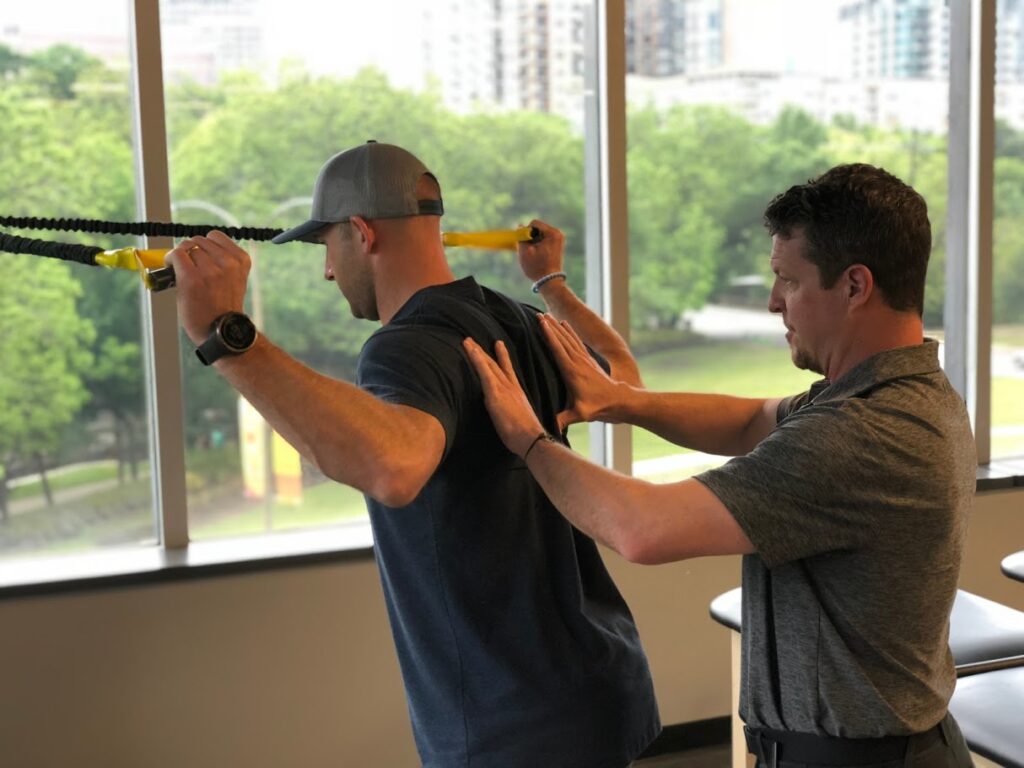
To learn more about how Exercise.com can help you run your fitness business, book a demo now!
Creating Training Plans for Clients with Mental Illness
Here’s how you can help your clients accomplish their training goals by using workout plan creator software to create workout plans, run fitness challenges, offer online workout groups, message clients, and more, all from your very own custom branded fitness apps.
Exercise.com stands out as an all-in-one fitness business management software with comprehensive workout plan sales capabilities. The robust member management, billing & invoicing, and unique fitness assessment tools offer a one-stop solution for fitness business needs. Here’s just some of what you can do with the Exercise.com platform:
Engage with clients via automations.
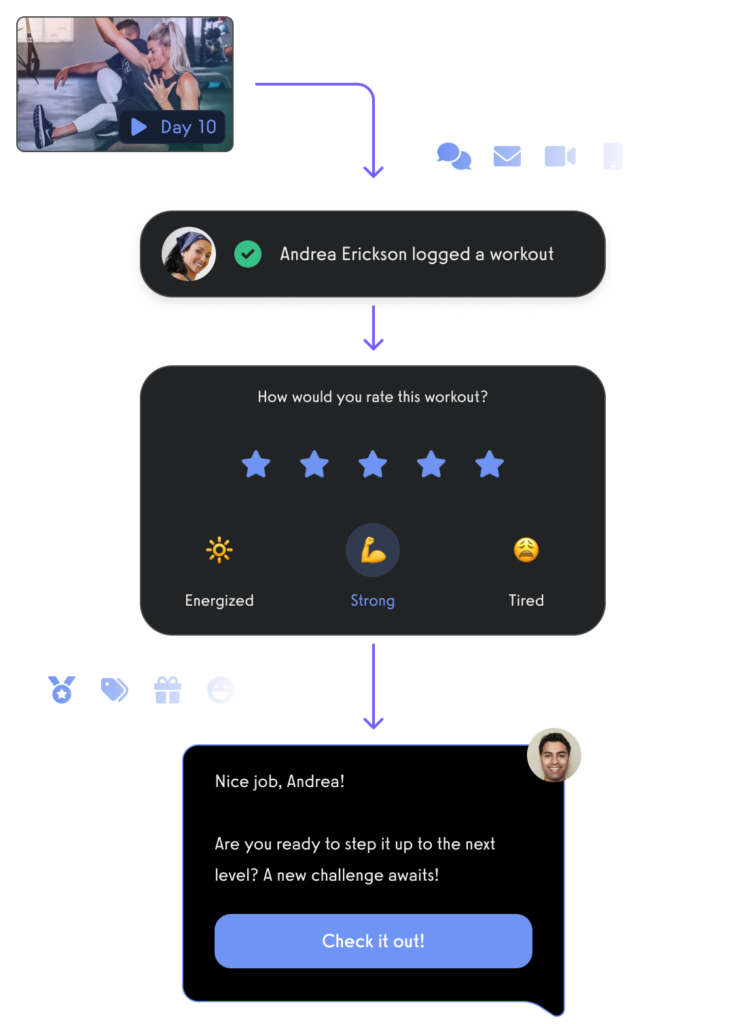
Manage leads with a fitness CRM.

Create and send fitness assessments with ease.
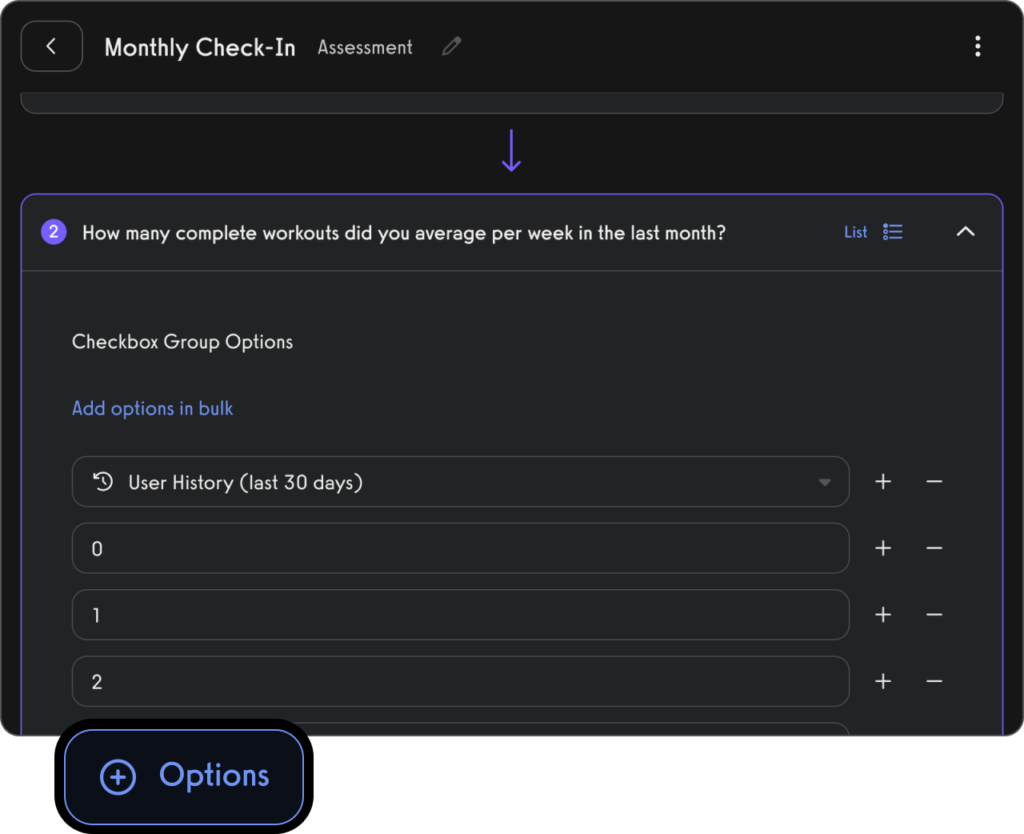
Use fitness habit tracking to inspire and motivate personal training clients (in-person and remote).

Use fitness progress photos to engage with clients.
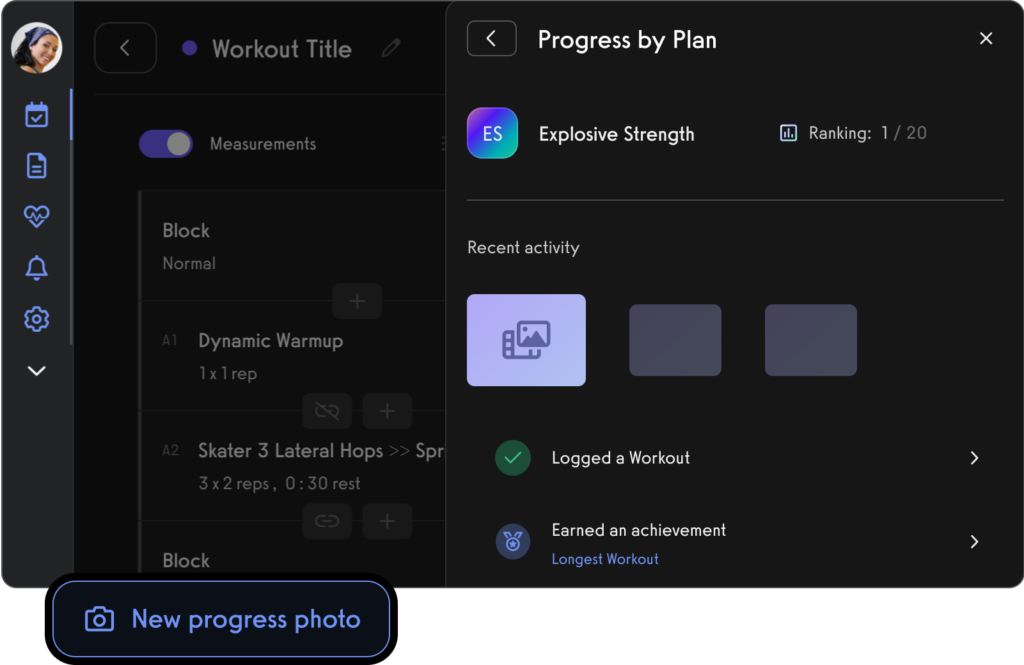
Use fitness leaderboards to track performance and inspire healthy competition.
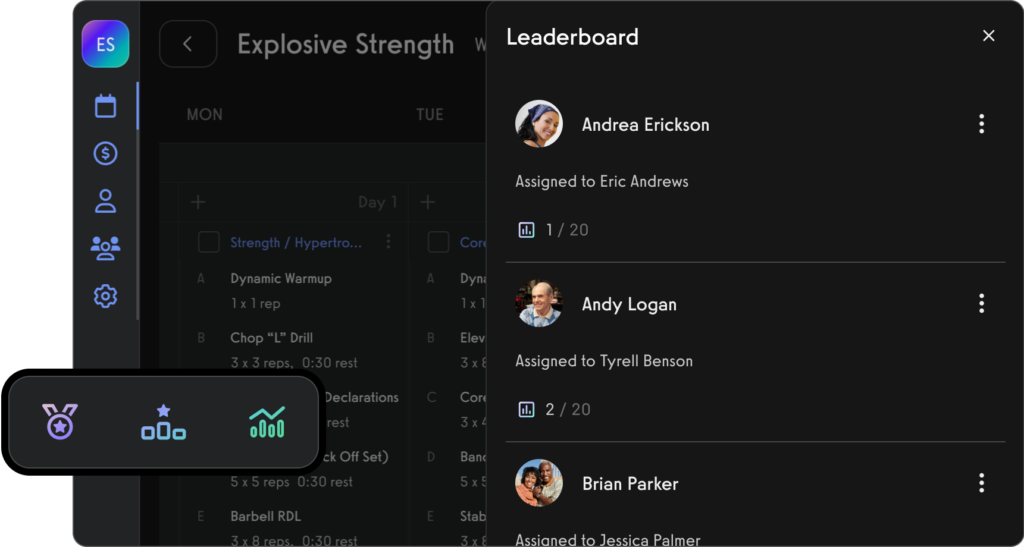
Use the exercise demonstration video library or create your own custom exercise demonstration videos.
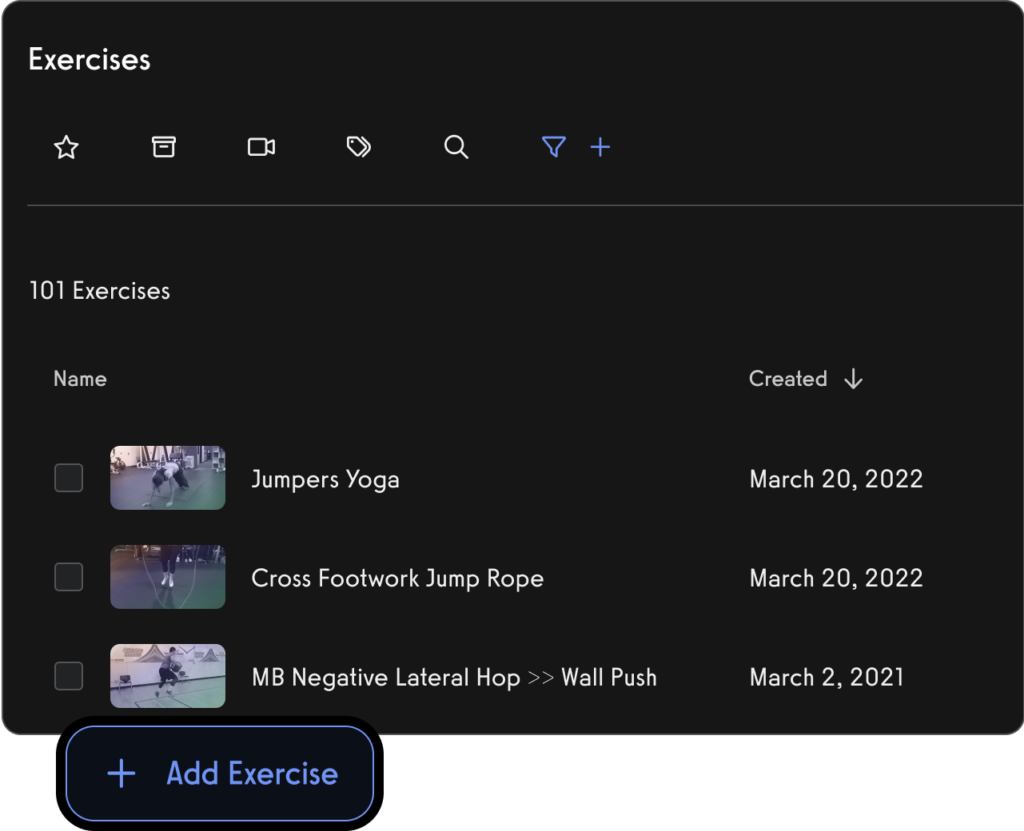
Create workout plans for parents and dependents, teams and more.

Manage personal training clients with ease.

Book appointments for clients (Read More: Best Gym Booking Software)

Create classes and fitness groups
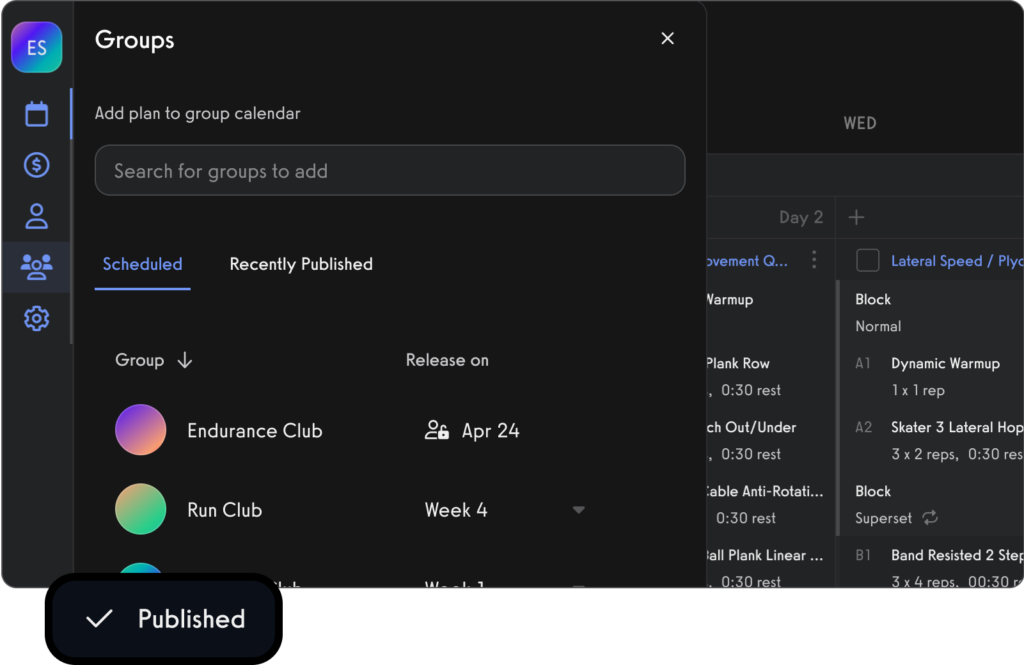
Manage fitness challenges (Read More: 100+ Fitness Challenge Ideas)
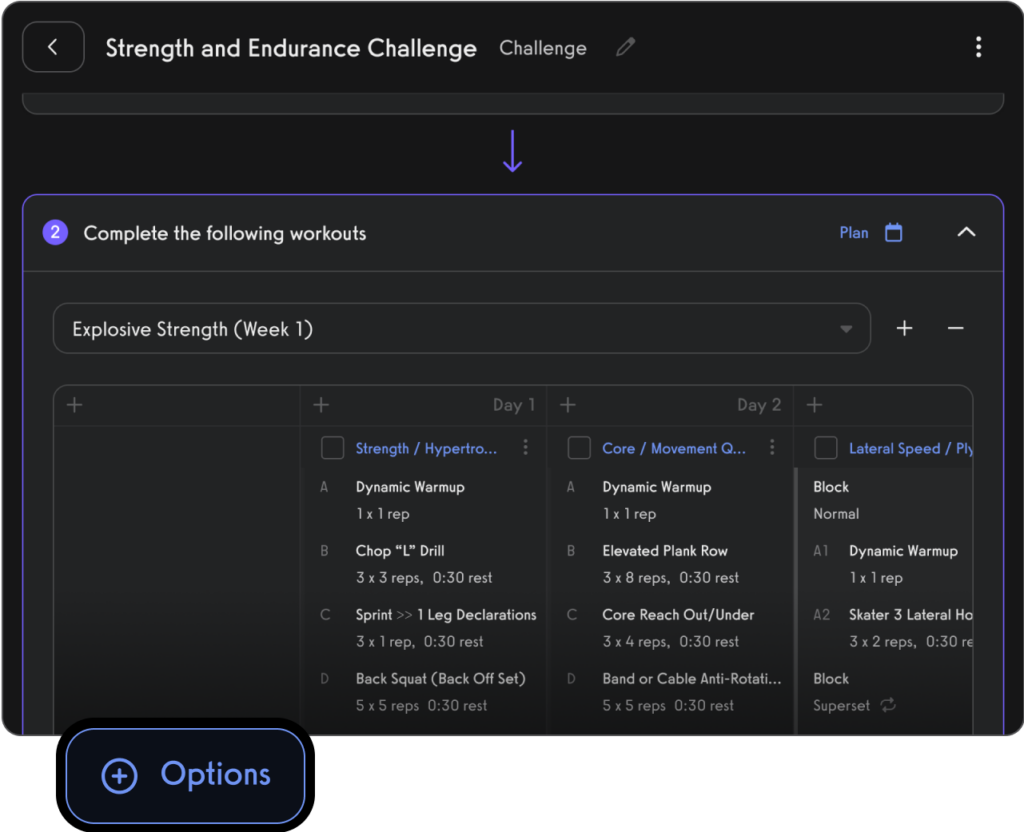
Process payments for open gym, classes, and personal training.

Communicate with gym members, athletes, team members, personal training clients, class members, parents, and dependents via SMS, email, and in-app push notification.
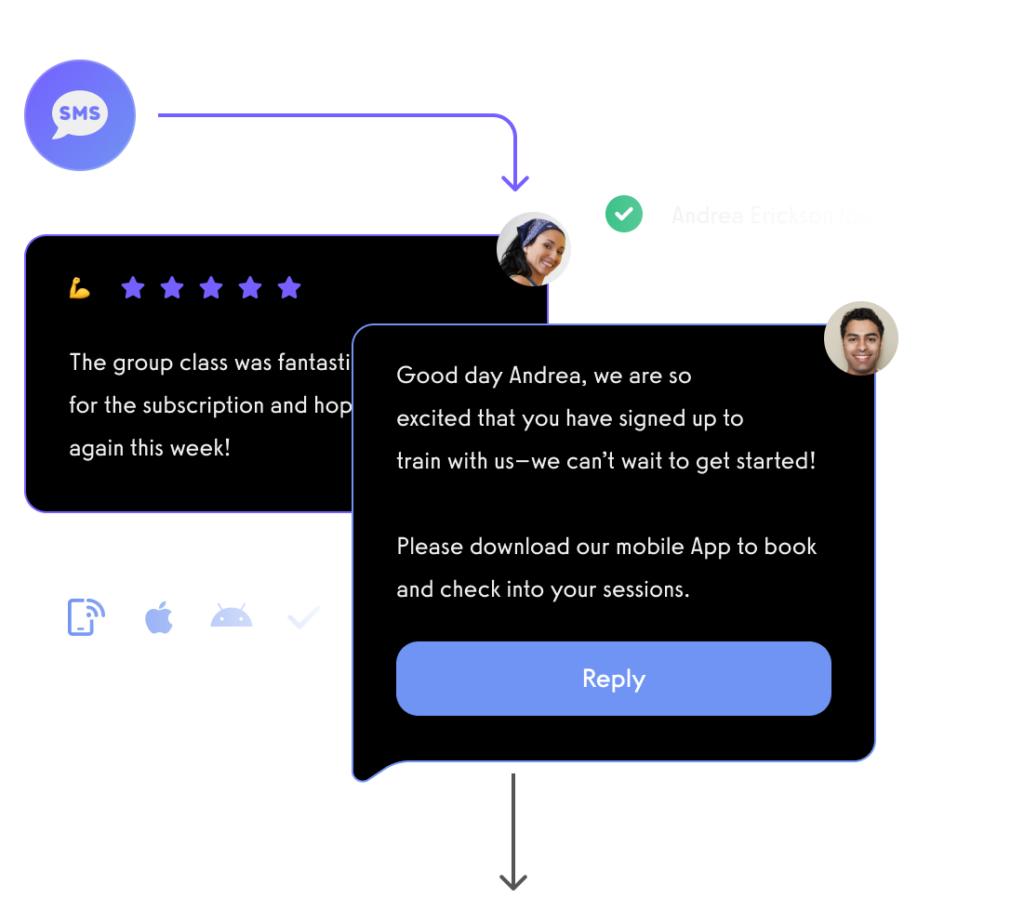
View performance over time, track personal records, and other fitness stats with performance reporting dashboards.
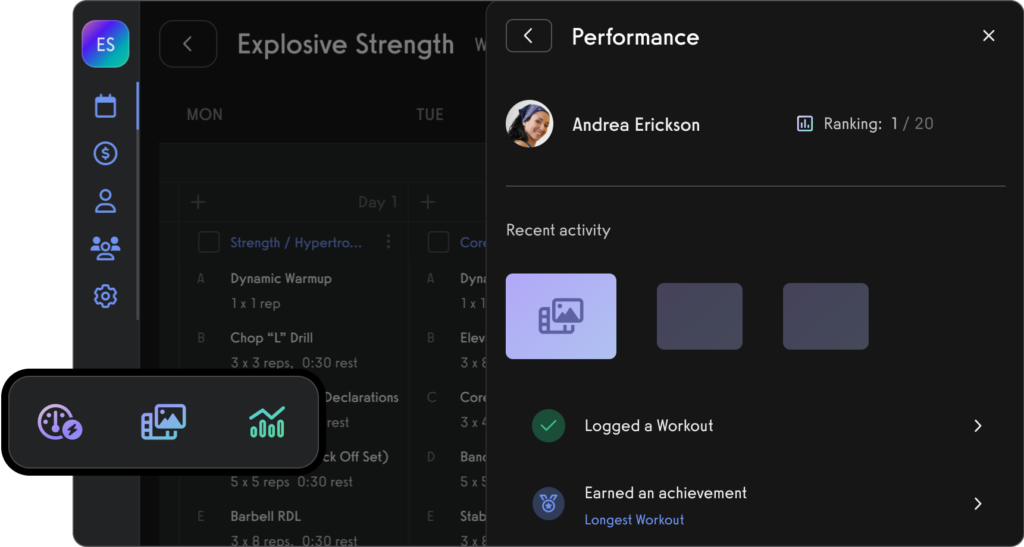
And of course, view all of your fitness business reports easily too.

All from your custom-branded fitness apps (Read More: Best Gym Mobile Fitness Apps Software)


Want to learn how your fitness business can take it to the next level? Get a demo now!









